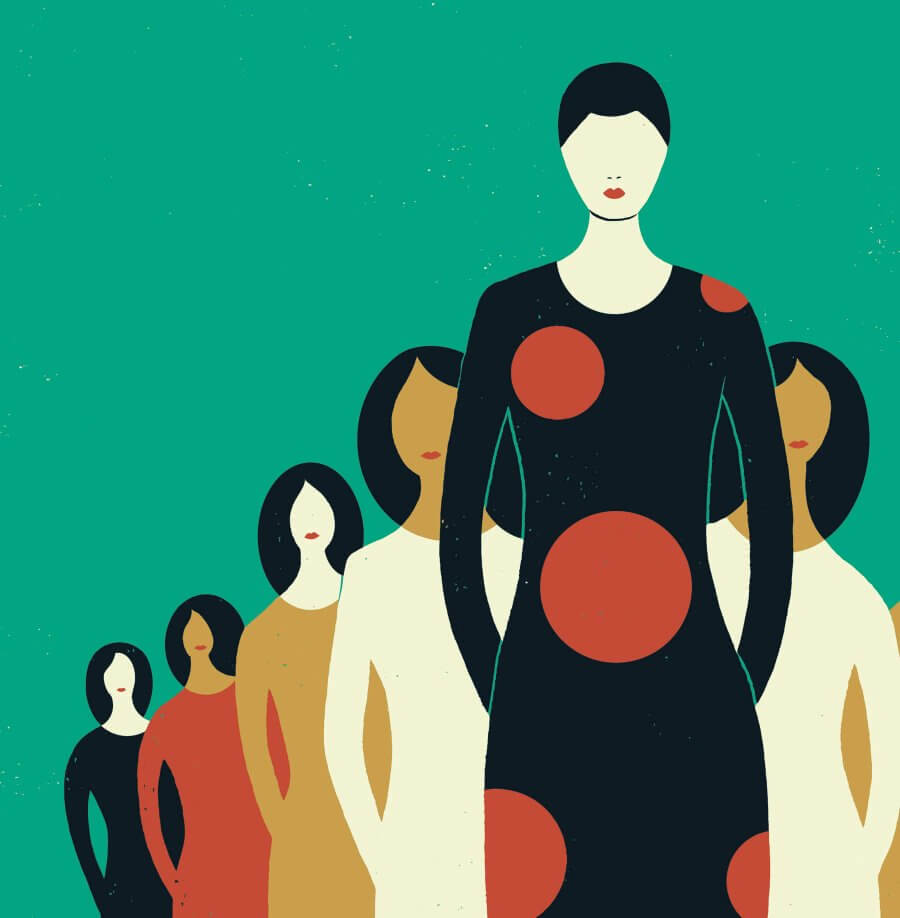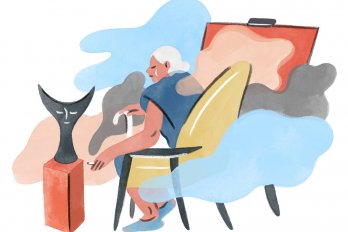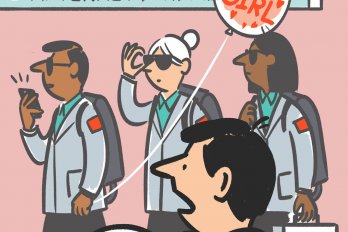I used to want to be a mother. Or I thought I did. Around Christmas, I would pull cookies from the oven, inhale the heady punch of ginger, and think, One day, I will teach someone how to do this. I would hold my grandmother’s treasured brooch, and think, One day, I will pass this on. Mostly, I imagined motherhood as a 1950s sitcom: bedtime stories, an abundance of firsts, holidays straight out of Hallmark.
Listen to an audio version of this story
For more Walrus audio, subscribe to AMI-audio podcasts on iTunes.
At the time of these reveries, I was in my late twenties, newly married. In the receiving line at my wedding, relatives asked me questions like, When are the kids coming? Some exclaimed that they were “so excited for them!” My father started stockpiling toys he found at garage sales. My mother reminded me that she had stowed my old baby clothes in vacuum-sealed bags. At night, my then husband would wrap his arms around me and whisper, “You’ll make such a good mom.”
In truth, I was on the fence. Children felt like both a way to jump-start my real life and a way to end it. I wasn’t afraid of being a mother, and I didn’t think I’d be a bad one. I just wanted to be other things so much more. As a journalist, my days rarely followed a nine-to-five schedule. I found purpose in my work and couldn’t imagine rearranging my days to include breastfeeding and diaper changes. I knew it was possible to be a mother while maintaining a career, but I had little desire to take on the challenge. I didn’t see children as a punishment or a burden. But I also did not see them as a gift. If anything, motherhood was a requirement—a stage women completed after marriage, a check mark on the way to an accomplished life.
I neared my thirties afraid to voice my dread. I worried that disclosing the main reason for my veer toward “no”—that I wanted to continue investing time in myself—would make me seem cold, even sociopathic. I worried about disappointing those around me, including my then husband, parents, and grandparents. I could already hear their disbelief. Even if they supported my choice, I worried about what I would do after I made it. How would I fill the next fifty—potentially empty—years of my life?
Those were weird, unsteady days. I would often catch myself entertaining other people’s fantasies of what it would mean for me to have children and, briefly, intensely wanting those fantasies too. Later, I’d worry about my indecision. I’d be in the shower, or about to fall asleep, and I would question who was right: them or me? The struggle to make a similar “wise and meaningful decision” is also at the centre of Sheila Heti’s new novel, Motherhood, in which an unnamed narrator consults a psychic and tarot cards. “Whether I want kids,” she says, is “the greatest secret I keep from myself.”
After several years of this uncertainty, an event forced my hand: my husband left me several months before I turned thirty-one. An untethered feeling of loss floated through me, a sense that I’d failed at being a wife and a woman. People who had once pestered me with baby questions now said I was lucky my divorce didn’t include kids, almost as if my marriage hadn’t been real. In those early weeks, I was perplexingly sad—not, I now realize, because I wanted a family but because I had been crudely knocked off the path of traditional adulthood. But, as my grief and shock lifted, I found an unexpected upside: freedom.
Much of society still can’t account for women like me. We are often forgotten at the fringes, even as we grow in number. In response, many of us have carved out our own spaces. The number of blogs, meet-up groups, and online communities dedicated to helping women navigate life without kids has mushroomed over the last few years. No Kidding!, a social club for child-free couples and singles founded in Vancouver in 1984, today has over forty chapters around the world. And while life outside the prescribed path can feel like a constant search for a new template, this struggle isn’t just relegated to those without children, those who can’t have them or those who can’t decide. Increasingly, mothers themselves are expressing the same frustration with the maternal script— namely, how following it often comes at the expense of their own success and happiness. No wonder so many of us have started to question whether modern motherhood is even good for women at all.
Canadians are increasingly living alone and without kids. At nearly 30 percent, single-person households today account for the greatest share of the population since Confederation. Over the past forty years, fertility rates in Canada have also been dropping, as women have fewer children or none at all. The numbers are even more dramatic in the United States, where nearly half of all women in their child-bearing years do not have children—that’s the highest number since the 1970s, when organizations such as the US Census Bureau started collecting such data.
The reasons for not becoming a mother vary. One 2014 market-research study, led by public-relations firm DeVries Global and Melanie Notkin, author of Otherhood: Modern Women Finding a New Kind of Happiness, surveyed 2,000 women in the US. It found that 40 percent without children were prioritizing their career; another 34 percent were waiting for the right relationship. That same study showed that 46 percent of those surveyed wanted children, 36 percent did not, and another 18 percent were undecided. Amy Blackstone, one of North America’s few dedicated researchers looking at childlessness and the child-free choice, says our current moment isn’t necessarily defined by there being more women without children. Rather, there’s an increased willingness to speak up about the issue.
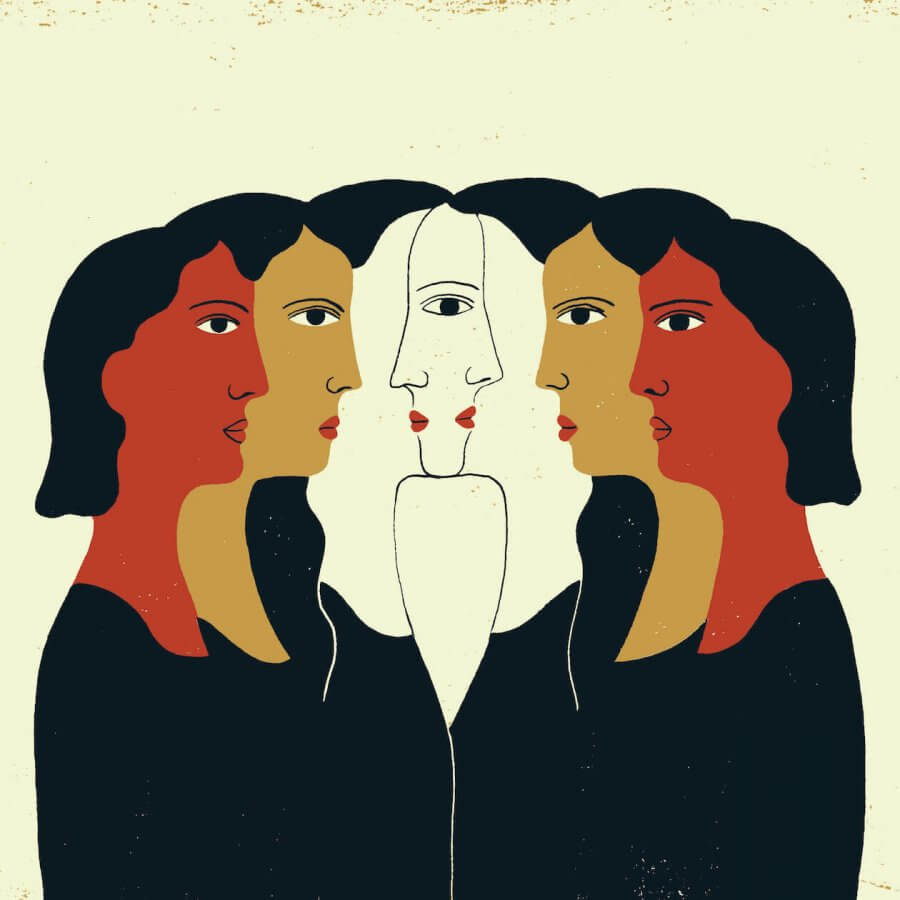
Women now have a variety of terms to describe their no-kids status. Those who actively choose not to have children can call themselves child-free or child-free by choice. Women might use the term childless if they wanted children but were unable to have them, often because of medical or biological reasons. Others use the term child-free by circumstance, which might include not finding a suitable partner or, perhaps, not having the financial means to raise a family. Some find that none of the terms suit them and have crafted their own. One of the community’s most popular figures, British author Jody Day, calls herself a “nomo,” short for not-mother. Other women have no labels, only a feeling that motherhood is not for them. When it comes to public perception, however, these shades of choice, chance, and circumstance rarely matter. Wherever women land on the no-kids spectrum, they are often viewed the same way: spinsters, cat ladies, career women, kid-haters, failures, losers.
As the default structure for women’s lives, the motherhood imperative is a stand-in for order, an assurance that every woman is exactly who, and what, she is supposed to be. We live in an intense pro-maternity culture, one marked by everything from reality shows like Teen Mom OG to Kylie Jenner’s record-shattering February 2018 Instagram reveal of her newborn daughter, Stormi, which sits at 17.5 million likes (and counting). Even Hillary Clinton’s election team worked hard to frame her as, in husband Bill’s words, “the best mother in the whole world.”
Academics and activists call this mindset pronatalism. As Laura Carroll explains in The Baby Matrix, pronatalism is “the idea that parenthood and raising children should be the central focus of every person’s adult life.” Pronatalism is the reason the protagonist of the Hunger Games movie series earns motherhood as her reward for saving the world, and it is why, in real life, reporters recently asked one of the world’s first AI female robots where she stands on motherhood (surprise: she thinks having a family is “really important”). Pronatalism teaches women that children are synonymous with stability and that they are the answer to the question of life’s meaning. Motherhood, this mindset says, is more than a choice: it is a higher calling. To step outside of that path is not only inconceivable, it’s unnatural.
The term pronatalism was first introduced to mainstream audiences in the 1970s, most notably with Ellen Peck and Judith Senderowitz’s book Pronatalism: The Myth of Mom and Apple Pie. The book followed Peck’s bestseller from a few years earlier, The Baby Trap, in which she argued that motherhood was not innate but rather an idea that was marketed and sold to women —in large part, to keep them tractable and to better preserve gender roles during a time of social flux. Peck, who would go on to co-found the National Organization for Non-Parents, also used The Baby Trap to argue that the addition of children often meant a subtraction of something vital: career advancement, emotional well-being, financial stability, time alone as a couple—or time alone, period.
More than forty years later, Peck’s criticism of our baby-obsessed society holds —even as women’s equality has exponentially advanced. There is no public or private realm that pronatalism misses. At once banal and insidious, it is the moral wire that thrums through our social structure. In the workplace, it is what drives us to bring newborns to the office, what has us ask a co-worker, by way of introduction, how many children they have. It’s what lets parents go home early and pressures those without kids to pick up the slack. In school, it’s why so much of our foundational, outdated sex-education curricula focused on the right time to have a baby, not whether there is a right time. It’s what props up mommy bloggers and their effect on the global market for kid products, which include clothes, toys, and food— sales of which hit a combined $350 billion (US) in 2016. It’s also the reason for child tax benefits and the NyQuil slogan “Moms don’t take sick days.” We can even see it in Ivanka Trump’s claim, in a PSA, that “the most important job any woman can have is being a mother.”
With such pervasive messaging, it’s no surprise women from across all spectrums of society find it difficult to convince themselves, let alone others, that a no-kids life is viable. “I always had a timeline in mind of when I would have kids,” Elizabeth Kitchener, a twenty-eight-year-old from Toronto, told me. Then, one day six years ago, she was discussing those plans with her mother, who asked her why she wanted children. When Kitchener fumbled for an answer, she realized she didn’t have a good one. The conclusion she arrived at next was something close to an epiphany: she actually had no desire to be a mother. Kitchener is today in a committed relationship, but before she met her current girlfriend, who also doesn’t want children, women on dates would grill her over whether she was “sure” kids were a no go. It became as hot button an issue as politics or religion. Scandalized women have since told her she still “has time” and have scolded her for saying she has energy to tend only to her own well-being.
She wasn’t the only woman I spoke to who felt shamed by her ambivalence toward children. Growing up, Victoria Carter never understood that she could choose not to be a mother. A thirty-six-year-old Cree woman based in Nanaimo, British Columbia, she tells me the importance of carrying on a bloodline is especially ingrained in her community. But, as her friends and family began to talk about having children, she realized she wasn’t interested in the conversation. When more and more women in her close circle became mothers, Carter began to feel increasingly anchorless. “As a woman—as an Indigenous woman—you have kids,” she says.
When she was living in Edmonton, she discovered a group called Babes without Babes. From that first meeting, she knew she had found what she needed: child-free women who were happy, connected, and successful. They were journalists, entrepreneurs, teachers, and librarians. The monthly get-togethers gave her the confirmation she craved: her choice was okay—she would be okay. She has since volunteered as a Big Sister and joined the Canadian Red Cross disaster management team. Her sense of liberation has carried her through other decisions in her life, such as a recent career change (out of the oil-and-gas industry and into health services) and a choice to go back to school. But she still remembers once feeling so despondent that she googled, “I don’t want kids. What’s wrong with me?”
In 2015, The Atlantic published a review of a book called Selfish, Shallow, and Self-Absorbed, a collection of essays by writers on their choice to live without children. The article received nearly 4,000 online comments, ranging from sympathetic to pitying. One of the messages came from a mother: “I’m not suggesting I’m ‘better’ than anyone. I am, however, saying that there is a fundamental difference between human beings who have experienced parenting and those who haven’t. I believe there is a difference in how they understand the concept of love and sacrifice.”
Many find it difficult to grasp why any woman would decide against embracing that “fundamental difference.” One woman I met, Cecilia Lyra, told me that when she and her husband, Bruno, realized that they had no interest in being parents, a close friend cautioned her to tell others she was infertile because that, presumably, would be easier to understand. People expect her life with Bruno to be lonely and shallow, but she describes her marriage as comfortable and happy. It isn’t that she’s without ambitions—she wants success as an author, for one. She also already feels that her life is full. “I’m not worried I won’t have a daughter’s graduation or a son’s wedding or that I won’t have grandkids,” she says. “It doesn’t even cross my mind.”
Still, at thirty-three, she experiences constant pushback on her choice, largely from those who are convinced she’ll regret it. This view is not uncommon. One study, published online in March 2016 in the academic journal Sex Roles, found that college-aged students viewed those without children as significantly “less psychologically fulfilled.” The participants also expressed anger, disgust, and disapproval toward men and women who chose not to have kids. Such findings, wrote the study’s author, Leslie Ashburn-Nardo, have troubling implications when it comes to transitioning to adulthood—namely that we overwhelmingly view children as an essential component for happy lives. “These perceptions,” writes Asburn-Nardo, “have absolutely no basis in reality.”
Indeed, women are increasingly challenging those perceptions. It’s worth mentioning that the Notkin-DeVries study found that whether or not they actually wanted children, 80 percent of the study’s respondents believed they could still lead a happy life without them. What’s more, in 2017, Israeli author Orna Donath published Regretting Motherhood: A Study, which drew on a five-year project in which she interviewed twenty-eight mothers from a variety of backgrounds and ages. Most of the participants told her that the experience of raising children caused them to feel trapped or suffocated. For Donath, those feelings stemmed from the way society pushes women toward motherhood without providing adequate systemic support or even an honest conversation about the possible long-term cost to their careers, ambitions, and happiness.
And that cost is anything but negligible. Although paid parental leave in Canada can extend to 18 months, to a maximum of $328 weekly, such social assistance cannot account for mothers’ missed opportunities and paused work advancement—never mind that recent data shows that just over 20 percent of working new mothers don’t even qualify for paid leave. And the potential consequences of taking a career break is not just limited to when children are infants.
In 2004, the US Center for Work-Life Policy formed a multi-year task force to look at what it dubbed “the hidden brain drain”—women who voluntarily leave the workforce. A survey of around 3,000 professionals (2,443 women and 653 men) found that 37 percent of women left work at one point in their careers. So, too, did 24 percent of men. But while nearly half of women cited “family time” as the reason, only 12 percent of men did the same. While most women who opted out wanted to return to work, less than half were able to go back to full-time, professional jobs. Even a short time away could cause a drastic drop in earnings. After less than a year, income fell 11 percent. After three years, the decline could more than triple. Is it any surprise that a separate study found that four in ten middle-aged female executives in corporate America do not have children? My own post-thirty professional life is filled with kid-free women—in fact, I can count on one hand the number of colleagues who are mothers.
The belief that children bring unmitigated joy is also complicated by reality. According to some research, as the number of children increases, so does parental unhappiness. This is usually tied to lifestyle changes: financial strain or dwindling time for affection. The unhappiness is most striking when it comes to mothers with infants —38 percent reported high levels of marital satisfaction, compared to 62 percent of women with no kids. Of course, any life choice comes with sacrifices. But the experiences of motherhood so rarely match the idealized image sold to us that the resulting regret, writes Donath, “invites us to rethink the politics of reproduction and the very obligation to become mothers at all.”
The notmom summit is the world’s only conference for and about women without children. Last October, I flew to Cleveland for the second annual summit, held in the home city of the conference’s founder, Karen Malone Wright. The weekend-long event draws more than 100 women from around the globe, including academics, filmmakers, authors, and both child-free women and childless women. I met other Canadians, women from all around the US, and—the record holder for the longest trip—a woman from New Zealand.
In many ways, the NotMom Summit operates more like a group therapy session in overdrive: part beacon of hope, part instruction manual. It’s perhaps the first time these women have been told both that they can still build a valuable life and that the tools to do so exist. There may be no blueprint for a no-kids existence, but the summit is working hard to create one. Last year, sessions included everything from information breakouts on finances, health, and relationships to hands-on planning for retirement and death, navigating the workplace, and finding opportunities for meaningful philanthropy and volunteering.
This year, the theme of the summit was “redefining feminine legacy.” The marketing materials explained that women without children live life differently, from how they spend their time and money to how they plan for their future. I wanted to hear, first-hand, what answers women sought from the summit—and, more crucially, what answers were provided. If we were redefining a woman’s legacy, what were we turning it into?
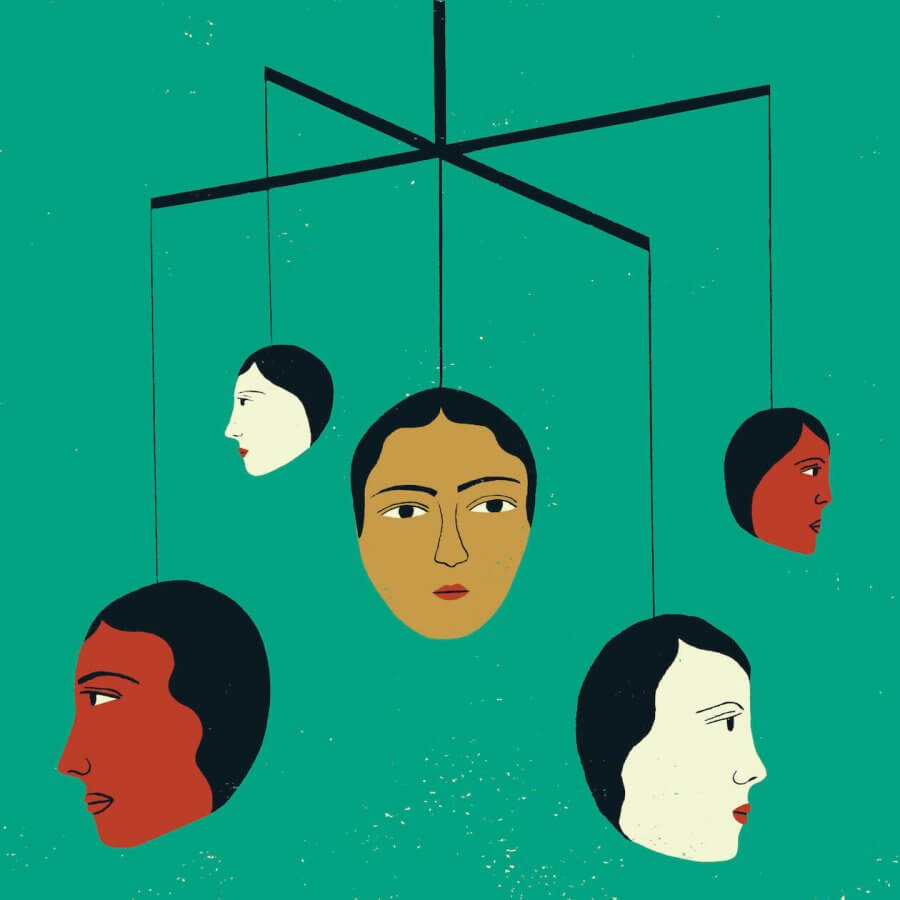
Malone Wright founded the NotMom website in her fifties after being unable to find a space that felt appropriate; infertility blogs felt too sad, some child-free blogs too exclusionary. Her dream for the summit is to bring together all women without children so that they can start to bridge their experiences, learn from each other, and tackle the stigma together.
The broad mandate can make for a mixed bag (literally, too: conference swag included everything from a condom and a light-up crown to a mini cookbook called No Leftovers!, with recipes for “one or two,” plus business cards for grief counsellors and life coaches, some of them printed with uplifting assurances). Women talked about difficulties accessing tubal ligations and abortion services and about difficulty accessing infertility treatments. Some panellists talked about unity; others stressed the need to recognize differences in cultural pressures and expectations around motherhood. Some wept over their missed opportunity; others used the term “breeders” in casual conversation. I witnessed clashes between childless women, often raw with grief, and child-free women, who urged celebration. There was talk that some of the former ditched after the first day, unable to be in an environment that wanted them to move on. Even in a place designed to let us all relax, we were learning how hard it was to escape the motherhood mandate.
One child-free woman I met at the conference, Laurie Sanci, is a Toronto-based organizational consultant, facilitator, and life coach. She dedicates time to helping women without children craft an identity around not being something. For her, that often means figuring out what a client thought motherhood would give them—unconditional love, say, or someone to nurture—and helping the person figure out how else they might achieve those goals. Perhaps they can strengthen existing bonds with nieces and nephews, or they can volunteer. Gaps can be filled, Sanci says, if there’s honesty about what they are and why they exist.
She would know. Throughout most of her life, Sanci was clear on her decision not to have children. She was surprised when, right before she hit her forties, she started to second-guess herself. “I couldn’t understand where it was coming from,” she says. “I had such certainty about it for so long.” She began to wonder if she had made a terrible mistake. As she grappled with it, a desolation overtook her. Then one day, while driving to visit her dying mother, a lightbulb went off: I am grieving the end of my fertility. She looked at where her old certainty came from, why she unexpectedly felt she’d be missing out without children. And she realized that, for her, living a full life would mean channelling her energy into her relationships with the children already in her life. Her grieving allowed her to understand that she didn’t want children but that she did want something.
“I really started to think about the idea that I did not want to tolerate a life without children,” says Sanci. “I wanted to find joy in it.” In her coaching work, she now regularly meets women who have not found that joy. They’re stuck, she says, and it’s her job to help them move forward.
After the first day’s sessions, I had dinner with Sanci; Malone Wright; Catherine-Emmanuelle Delisle, a childless woman who runs the popular Montreal-based website Femme Sans Enfant; and an Ottawa-based woman named Chelsey, who runs a 15,000-strong online community called Childfree is Not a Dirty Word (she asked that her full name not be used). Conversation flowed easily, much of it about the risk of including everyone under the same not-mom umbrella. Wright said that it took “balls” for many women to come to the summit. She’s been told repeatedly that it isn’t a good idea to force so many no-kids groups into the same space. Yet, like the other women at the table, she believes the tension is necessary to building a more cohesive community; one that can , as it learns about the many connected ways women are pressured to be mothers, work together to topple the fantasy of motherhood.
The summit was the first place I realized other women without children might feel as lost as I once did. But it’s also the first place I came to think of the not-moms as a potential civil rights movement, a linchpin in the fight for women’s equality in the workplace, at home, and in our broader society. Already, many are starting to use their collective power to build a bigger and more intentional shift, one that can benefit all women. This is not something that’s lost on them. I sat in one session, dubbed “NotMoms on the Job: Insight from HR,” in which the facilitator pondered sit-ins, marches, and rallies to get equal treatment. “Unfortunately,” she said, “that might be what we have to do.”
The HR session focused on the perception that those without children were expected to pick up extra work, work longer, take less prime holiday time, and, also, field inappropriate questions about their no-kids status. This feeling of disparity in the workplace is also widespread. In one 2014 UK study of 23,000 women, two-thirds of non-parents said they felt women without children were expected to work longer hours. For many women without children, the solution is not to take away flexible time from other women but rather to implement that same flexibility across the board—who’s to say a co-worker’s Spanish lesson is less important that your child’s ballet recital? More than that, though, at the centre of the not-mom’s demands is a call for fair treatment of all women in the workplace—a call to eliminate traditional gender roles and gendered expectations on the job. Considering that professional women are still largely expected to bring the office-party cupcakes, order lunch, and take notes—and are viewed more negatively than men when they say no to such office housekeeping—this shift can only help.
This proposed sea change extends beyond work. In another session, called “Getting Older Just Like You Planned It,” women talked about bucking expectations that children will care for their aging parents. In North Carolina, one woman, Marianne Kilkenny, who is divorced with no children, founded Women for Living in Community to advocate for alternative housing options to help women grow older “with grace and dignity.” (She has herself shared a house with a rotating number of women roommates, earning her a Golden Girls moniker in the media.) A number of other, similar communities and alternative retirement arrangements are flourishing across North America. A 2013 report from the American Association of Retired Persons indicated that, in the US, 4 million women aged fifty-plus (some of them mothers) lived with at least two other women fifty-plus, a statistic that was expected to rise.
But before such large societal shifts can happen, women have to first find each other and, through that support, speak out about feelings of isolation and disconnection. “There’s a lot of pressure to fit into the mother’s costume,” says Delisle, who, along with running a website, hosts meet-ups for childless and child-free women. At fourteen, Delisle found out she was unable to conceive. It was traumatizing, she says, and her identity became focused on why she felt so different. In adulthood, her sadness affected her work as a teacher because it became hard to be in the break room, chatting with colleagues who seemed to be living the picture-perfect life she wanted. By the time she turned thirty-five, she’d allowed her feelings pile up in silence for years. She didn’t know anyone in her situation and felt that she had no one to talk to. She was at a dead end.
She turned to the internet. She found Lisa Manterfield, who created the blog Life Without Baby and also ran a six-month online mentorship program to help women connect and counsel each other. Much of Delisle’s healing happened then. During that time, she invited her family together and, inspired by Manterfield’s suggestion of creating a grieving ceremony, chose a park in the city to plant a tree. When they assembled, she read a list of all the reasons she wanted children, then she buried the paper in the dirt, planted the sapling, and, together, she and her family started to let go.
Afew weeks after the NotMom Summit, I took a mini road trip with my mom and sister to visit my mother’s makeshift storage space, the vast basement of a friend’s farmhouse. The cavernous room is filled with extraneous objects: furniture, tools, and mementoes that, while rarely accessed, cannot be discarded. My mom’s stuff—along with mine and my sister’s— forms its own pile. It holds action figures, a box of my sister’s and my favourite books, and, more preciously placed, like a cautious offering to my fertility, my delicately handmade baby clothes.
We flipped through our old books; my sister picked a few, as well as an old plastic horse figurine, to take home. The clothes we left in limbo, with me refusing to take them, my mother refusing to send them to the trash pile. Later on, after I’d carried a heavy box of rescued items to the car, my sister and I goofed around on Snapchat, annoying our mother endlessly, somehow transporting ourselves back in time, more kids than adults. Before we left, we admired my mother’s professional redesign of her friend’s kitchen, ogling its sleek functionality, grown-ups again. It was not lost on me that I wouldn’t have these moments with my own children. Yet, the moments I did have—was having right then—felt like enough.
I did take one thing. Months later, it’s still near my front door: an old Barbie travelling case from my mom’s era, splashed in 1960s neon. There’s a persistent belief that women without children hate kids, that we don’t value family. For most of us, that’s far from the truth. I wanted the case because it represents the road not taken: a well-worn way forward that would have led to a life of tradition and milestones, sacrifices both good and bad. Around me are infinite other roads, many of them question marks, each one a path to forge for myself.

